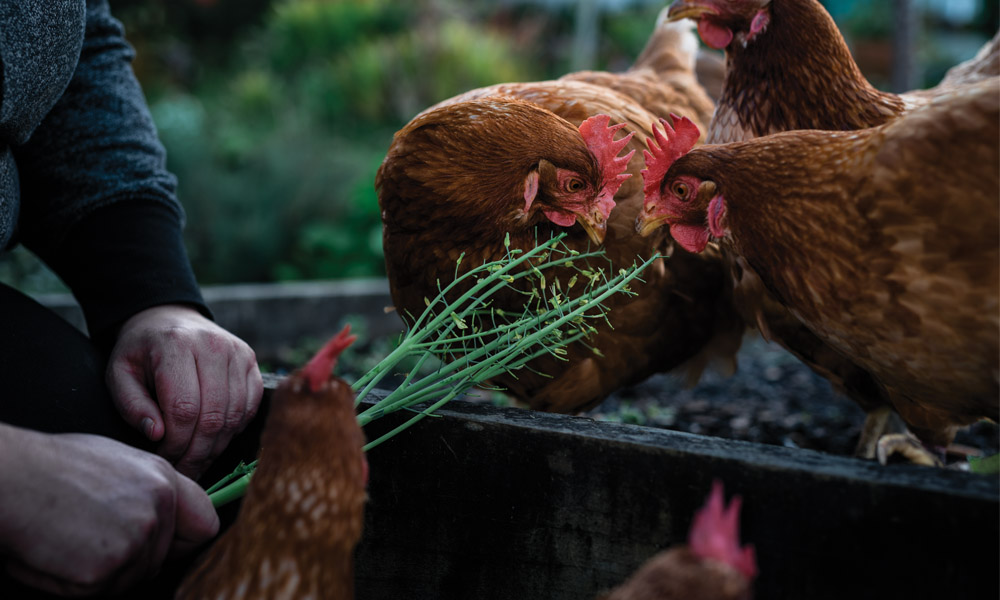
Hens deserve a life worth living
October 8th, 2020Like many people caring for animals, my mornings start with a feeding and cleaning routine. With over 30 hens, the vast majority of whom arrived featherless and skinny after serving an 18-month sentence in an intensive farm, the daily routine is well-planned and efficiently executed.
The hens rush out of their night house in a flurry of activity, full of energy and enthusiasm for the day. They dig into their breakfast and squabble occasionally (even though there is plenty to go around) and then head off to different parts of the garden, some to dig holes, others to have a drink from their favourite water vessel or peck at the best bits of grass. They then spend the day doing hen stuff – dust bathing, foraging for tasty food and stretching their wings in the sun. They have friend groups and routines – Penelope, Belinda and Ethyl like to hang out in the front garden to scratch and scavenge birdseed from the wild bird feeders, whereas Valerie and Matilda are generally found exploring further down the sheep paddocks, trying to find the best new (and often weird!) place to lay eggs.
These are normal hen lives. These hens get to do all the things they like and are strongly compelled to do – behaviours that have been present in hens for many generations and that they have strong instincts to express. Because we know this, in New Zealand law we recognise the need that hens have to exhibit these behaviours. In fact, the layer hen code of welfare states that as a minimum standard:
‘Hens must have the opportunity to express a range of normal behaviours. These include, but are not limited to nesting, perching, scratching, ground pecking, and dust bathing.’
Common sense then clearly dictates that all hens must be housed in similar conditions to the hens that live with me. Yet most hens used for egg production in New Zealand (65%) still live in crowded cages.
Colony cages make a minimal effort to provide for hens’ behavioural needs. These crowded cages have slippery metal perches on which no hen can comfortably rest and flap her wings. The cages have plastic flaps to mimic a nest box ‒ nothing like a cosy space with straw that can be moulded into just the right shape for each hen. The cages only have plastic ridges for scratching, a sad substitute for the varied textures of soil and grass found in nature. When hens dust bathe at my place the dust flies into the air, they stretch and kick and flap their wings, and make lots of mess. No hen in a crowded cage has the space to do this, let alone anything like soil in which to bathe. Furthermore, each of the ‘enrichments’ in a colony cage is shared by between 60 to 80 hens.
It is clear from even a cursory examination of colony cages that they don’t meet hens’ behavioural needs. And, yet they are still legal in New Zealand. Hens deserve a good life – for this to be achieved, it is crucial to ensure their housing provides them with meaningful opportunities to express their normal behaviours. It’s time we let all hens in New Zealand live lives as good as those of Matilda, Ethyl, Belinda, Valerie, Penelope and the rest of their flock.
Roz Holland is SAFE’s Veterinary Science Advisor and cares for over 30 rescue hens on her Auckland property.
Let‘s put the chicken before the egg. Take action today by calling on New Zealand’s political parties to free hens from cages.
